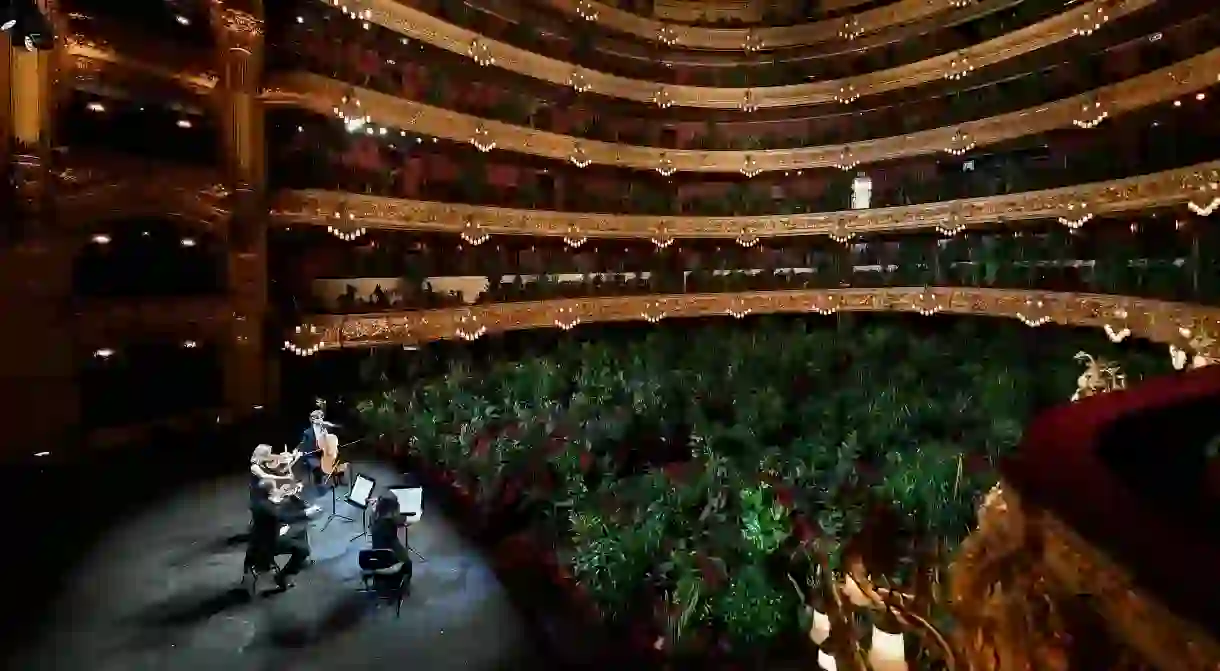Why Did Barcelona Opera House Reopen to a 'Live' Audience of 2,292 plants?

Barcelona’s Liceu opera house held its first concert post-lockdown recently, and the quartet on stage were no doubt happy to be performing live again. But the audience wasn’t forthcoming. We reveal why.
Gran Teatre del Liceu in Barcelona, Catalonia, threw open its doors to 2,292 guests for a night entitled Concert for the Biocene. It featured a performance of Puccini’s Crisantemi (Chrysanthemums) by the Uceli Quartet, and served as an introduction to the opera genre for all attendees. And why was this the case? Because the audience was comprised entirely of plants.
Víctor García de Gomar, the Liceu’s artistic director, called it a “vegetable kingdom” – and it made for a viral move. Yet more than a PR stunt, it was a commentary on the social effect of lockdown, with a nod to our relationship with other living things.

“Plants had to be told something concrete – and told what we had gone through over this time in the form of music, which is a language I know they understand or at least influences them,” said Eugenio Ampudia, the artist whose idea brought about the concert. “It seemed basic to me that performance is almost a requiem without being one, but it can transmit our sadness of what has happened to other beings.”

Meanwhile, speaking to The Guardian, Ampudia explained, “At a time when an important part of humankind has shut itself up in enclosed spaces and been obliged to relinquish movement, nature has crept forward to occupy the spaces we have ceded. And it has done so at its own rhythm, according to its patient biological cycle. Can we broaden our empathy and bring it to bear on other species? Let’s start by using art and music and inviting nature into a great concert hall.”
The recording has since been live-streamed for humans to enjoy, while the plants have been donated to frontline health workers as a token of gratitude.













